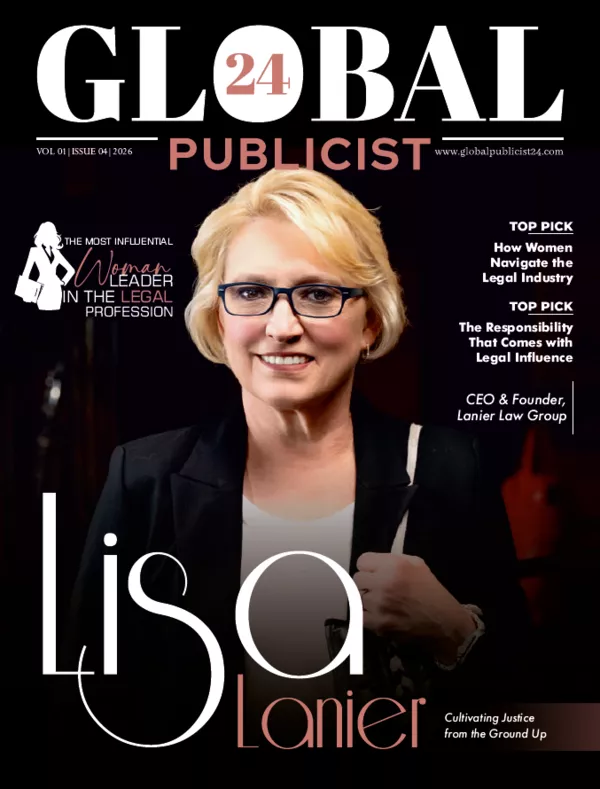Walking into the boardroom of a major corporation five years ago looked vastly different than it does today. Where once polished conference tables were surrounded by a sea of identical dark suits and matching perspectives, today’s corporate leadership reflects a fundamental shift that goes far beyond mere representation. Women executives aren’t simply filling seats; they’re rewriting the entire playbook on how business gets done, and trust has become their most powerful tool.
I’ve witnessed this transformation firsthand through countless interviews, boardroom observations, and late-night conversations with executives who are quietly revolutionizing corporate America. What strikes me most isn’t the dramatic policy overhauls or the headline-grabbing initiatives. It’s the subtle, persistent way women leaders are weaving ethical considerations into everyday business decisions, creating a new framework where integrity isn’t just good PR… it’s good business.
The Trust Deficit Crisis
Corporate America has been hemorrhaging trust for decades. From spectacular financial collapses to widespread account fraud scandals, each corporate misstep has chipped away at public confidence. Recent trust surveys reveal that fewer than six in ten Americans trust business to do the right thing, a number that should terrify any CEO worth their stock options.
Enter women executives, who seem to understand intuitively what their male counterparts have struggled to grasp: in our hyperconnected, information-saturated world, trust isn’t just another metric to track. It’s become the ultimate currency, more valuable than quarterly earnings because it directly impacts every other number that matters.
Sarah Chen, the chief executive of a mid-sized technology firm in Austin, explained it to me this way: “When I started my career, success was measured by how fast you could move and how many corners you could cut. Now? Success is measured by how many people believe in your vision and trust you to deliver on it responsibly.”
The Empathy Advantage
What makes women executives particularly effective at building trust isn’t some mystical feminine intuition. It’s their willingness to embrace empathy as a business strategy. While traditional corporate culture often viewed empathy as weakness, women leaders are proving it’s actually a competitive advantage.
Take Lisa Rodriguez, who turned around a struggling manufacturing company by implementing what she calls “radical transparency.” Instead of hiding layoffs behind corporate speak, she held town halls where employees could ask direct questions about the company’s future. When she had to close a plant, she personally visited every affected family to explain the decision and help them find new opportunities.
“People told me I was crazy to be so open,” Rodriguez recalls. “But when you treat people like adults who deserve the truth, they respond by giving you their best effort, even in difficult circumstances.”
The numbers back up her approach. Employee satisfaction scores increased by 40% during her tenure, and voluntary turnover dropped to industry-leading lows. More importantly, when the company needed to pivot during the pandemic, employees trusted leadership enough to embrace radical changes without resistance.
Redefining Success Metrics
Perhaps nowhere is the impact of women executives more visible than in how they’re redefining what success looks like. The traditional corporate scorecard focused almost exclusively on short-term profits and shareholder returns is being expanded to include stakeholder value, environmental impact, and social responsibility.
Jennifer Walsh, who leads a major consulting firm, describes the shift this way: “We used to joke that ‘ethical’ was what you did after you made your money. Now we’re proving that ethical practices are how you make sustainable money in the first place.”
This isn’t just feel-good rhetoric. Companies with women in senior leadership positions consistently outperform their peers on environmental, social, and governance metrics. They’re also more likely to have robust whistleblower protections, transparent reporting practices, and ethical supply chain standards.
But here’s what’s interesting: these companies aren’t sacrificing profitability for principles. Recent analysis shows that companies with women in executive roles demonstrate 15% better financial performance than industry averages. The correlation isn’t coincidental… it’s causal. Ethical practices build trust, trust builds loyalty, and loyalty builds sustainable profits.
The Relationship Revolution
Where male-dominated corporate culture often prioritized transactions, women executives are prioritizing relationships. This shift is visible in everything from vendor negotiations to customer service policies.
Maria Santos, who runs a regional bank, eliminated the aggressive sales quotas that had plagued the industry for decades. Instead, her team focuses on understanding each customer’s actual needs and building long-term financial partnerships.
“Our competitors were still pushing products people didn’t need,” Santos explains. “We decided to focus on providing solutions people actually wanted. Revolutionary concept, right?”
The results speak for themselves. While competitor banks faced regulatory scrutiny and public backlash for predatory practices, Santos’s institution saw customer satisfaction scores climb to record highs and deposits increase by 35% over three years.
The Accountability Factor
What sets women executives apart isn’t that they never make mistakes… it’s how they handle those mistakes when they inevitably occur. The traditional corporate playbook calls for deflection, legal maneuvering, and damage control. Women leaders are more likely to own problems directly and focus on solutions.
When a data breach compromised customer information at a tech startup led by CEO Rachel Kim, she immediately appeared in a video message taking personal responsibility. No corporate lawyers, no prepared statements, just a straightforward apology and detailed explanation of what went wrong and how it would be fixed.
“My advisors thought I was committing career suicide,” Kim remembers. “But I knew our customers deserved the truth, not spin.” Customer retention rates after the breach were 90%, unprecedented for a data security incident.
The Ripple Effect
The influence of women executives extends far beyond their own organizations. They’re creating a ripple effect that’s changing industry standards and expectations across entire sectors.
Take the venture capital world, historically one of the most male-dominated industries in business. Women-led VC firms are not only funding more diverse founders but also implementing different evaluation criteria that prioritize sustainable business models over pure growth metrics.
This approach is proving prescient. While many high-flying startups funded by traditional VCs have crashed and burned, companies backed by women-led firms show higher survival rates and more stable growth patterns.
Building Authentic Connections
The difference becomes most apparent in how women executives communicate with stakeholders. Where traditional corporate communications relied heavily on jargon and carefully crafted messaging designed to say nothing while sounding important, women leaders tend toward direct, honest communication that acknowledges uncertainty and complexity.
During a recent earnings call I observed, CEO Amanda Torres of a retail chain spent fifteen minutes explaining why the company had missed quarterly projections. Instead of blame-shifting or making excuses, she walked analysts through the specific market challenges, outlined what the company was learning, and detailed the strategic adjustments being made.
“Wall Street analysts hate uncertainty,” Torres told me later. “But they hate being lied to even more. When you’re honest about challenges, people trust your assessment of opportunities too.”
Her company’s stock price actually increased following the call, defying conventional wisdom about missing earnings expectations.
The Cultural Transformation
Perhaps most significantly, women executives are changing corporate culture from the inside out. They’re creating environments where ethical concerns can be raised without fear of retaliation, where long-term thinking is valued over short-term gains, and where success is measured by more than just financial metrics.
This cultural shift is attracting top talent, particularly among younger workers who prioritize purpose alongside paychecks. Companies led by women report significantly higher rates of employee engagement and lower turnover, saving millions in recruiting and training costs.
“The talent wars aren’t really about salary anymore,” explains Dr. Patricia Williams, who studies organizational behavior. “They’re about meaning. Workers want to know their efforts are contributing to something worthwhile, and women executives are better at articulating and delivering on that value proposition.”
The Future of Corporate Leadership
As I watch this transformation unfold, it’s clear we’re not just witnessing a changing of the guard… we’re seeing the emergence of an entirely new model of corporate leadership. One where trust isn’t just a nice-to-have but a fundamental requirement for sustainable success.
The women executives leading this charge aren’t doing it because they’re women. They’re doing it because they understand that in our interconnected, transparent world, ethical leadership isn’t just morally right, it’s strategically essential.
The old currency of corporate power was fear, control, and short-term profits. The new currency is trust, authenticity, and sustainable value creation. And women executives aren’t just adapting to this new reality… they’re defining it.
As we look toward the future of business, one thing is clear: the companies that thrive will be those that understand trust isn’t something you earn once and keep forever. It’s something you must earn every single day, with every single decision, through every single interaction.












